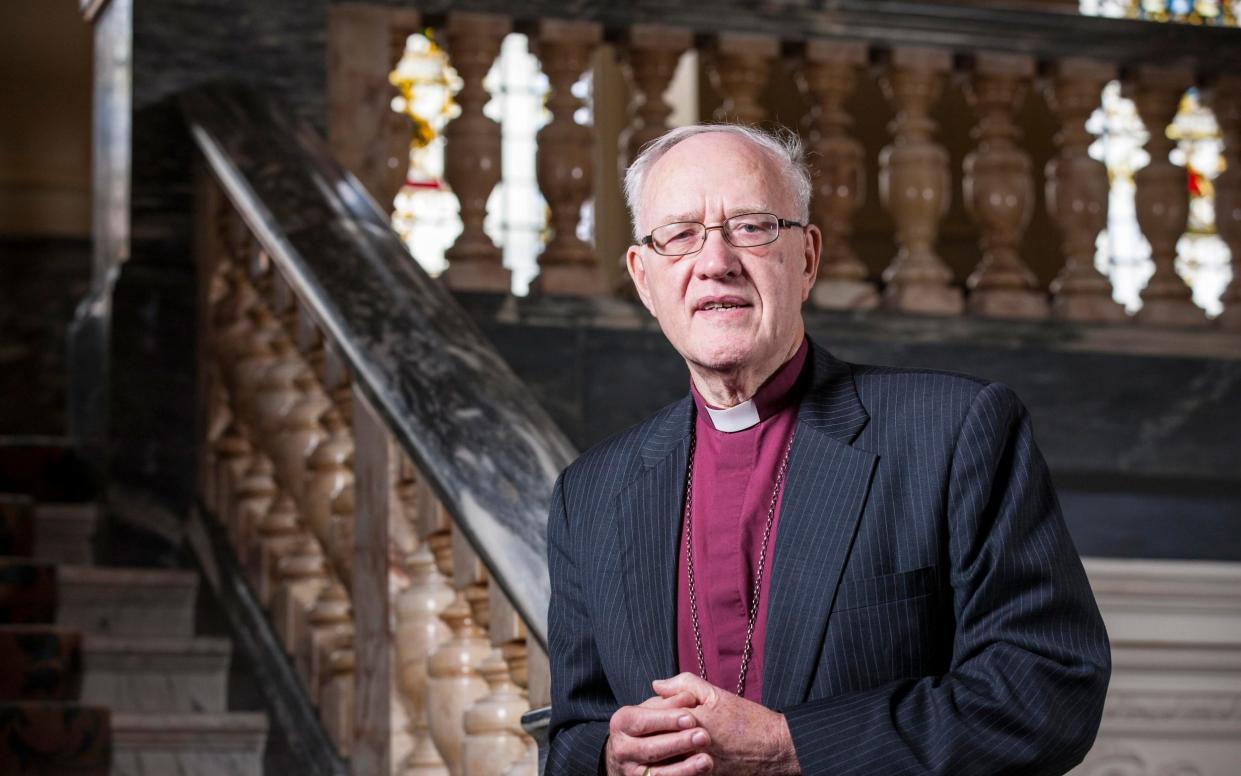Church of England set for ‘urgent’ review into asylum seeker policy

The Church of England is reviewing its policies towards asylum seekers as a “matter of urgency” after it was accused of presiding over a “conveyor belt” of fake conversions.
British churches have faced criticism in recent weeks for being “duped” by asylum seekers who falsely claim to have converted to Christianity to boost their chances of staying in Britain.
Abdul Ezedi, the now-deceased Clapham chemical attacker who had two prior convictions for sex assault and exposure, was twice refused asylum before he was granted leave to remain when a Baptist minister vouched for his conversion from Islam.
The Church of England has since admitted that it may have been “scammed” by some baptised asylum seekers but has insisted that the Home Office bears ultimate responsibility for approving or rejecting asylum applications.
Lord Carey, the former Archbishop of Canterbury, warned earlier this month that the Church was failing to provide sufficient advice to vicars on “how to discern whether these conversions are authentic, long-standing and life-changing”.
A representative of the Archbishops’ Council, one of the Church’s main executive bodies, told General Synod, the Church’s legislative body, on Saturday that a review was being conducted as “a matter of urgency”.
‘Providing safety’
Mark Sheard said the review would be conducted by the Church’s Faith and Public Life department and that bishops would contribute.
“We must give no individual, however, any opportunity to get in the way of this country providing safety for those whose lives are at risk because of their religious belief, nor must we in any way hinder the work of creating and baptising disciples,” he said.
Mr Sheard did not disclose a timeframe for the review or say whether the Church would be compelled to abide by any of its recommendations.
He was responding to a question by Mark Townsend, a lay member, who asked if the Church would review the advice it gives priests on how to respond to asylum seekers who request baptism.
Prof Roy Faulkner, another lay member, asked what proportion of new Anglicans were ex-Muslim immigrants who had been able to stay in Britain because of their conversion.
Carl Hughes, on behalf of the Archbishops’ Council, replied in a written answer: “We do not monitor the ethnic or legal background of new disciples.”
Prof Faulkner said: “I just feel that, as a result of this issue, there seems to be a certain amount of buck-passing going on between the Home Office and the Church of England.”
‘Veritable industry’
The Rev Matthew Firth, a former Church of England priest who now ministers in the Free Church of England, told The Telegraph earlier this month that he encountered a “veritable industry” of asylum seeker baptisms when he became priest-in-charge at St Cuthbert’s, Darlington.
The Diocese of Durham, where the Rev Firth ministered, rebuked his allegations as “nonsense”.
The Church of England has also dismissed claims by Suella Braverman and Priti Patel that churches have routinely supported “bogus” asylum claims.
The Most Rev Justin Welby, the current Archbishop of Canterbury, has accused critics of “mischaracterisation” and insisted that “we simply follow the teaching of the Bible which is to care for the stranger”.
But court rulings unearthed by The Telegraph have revealed that judges have repeatedly warned that some “unquestioning” Church leaders are being “duped”.
A series of immigration tribunal decisions have highlighted examples of clergymen and lay leaders failing to query the motives of purported converts.
Migrants can claim asylum based on their conversion to a new religion if they will face persecution in their home country because of their new faith.

